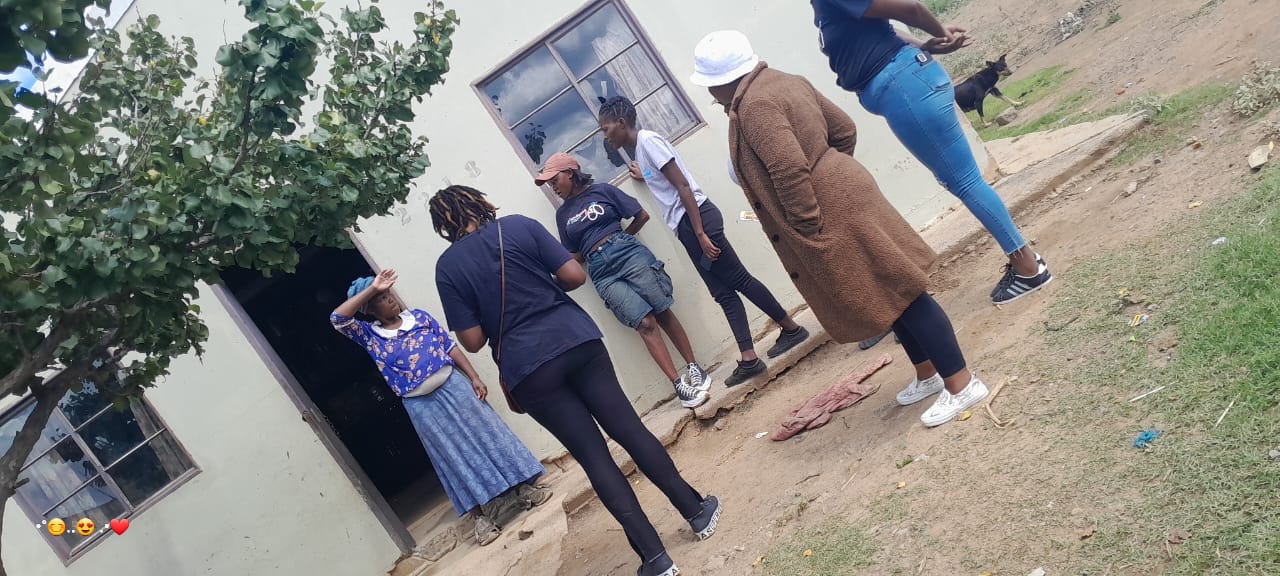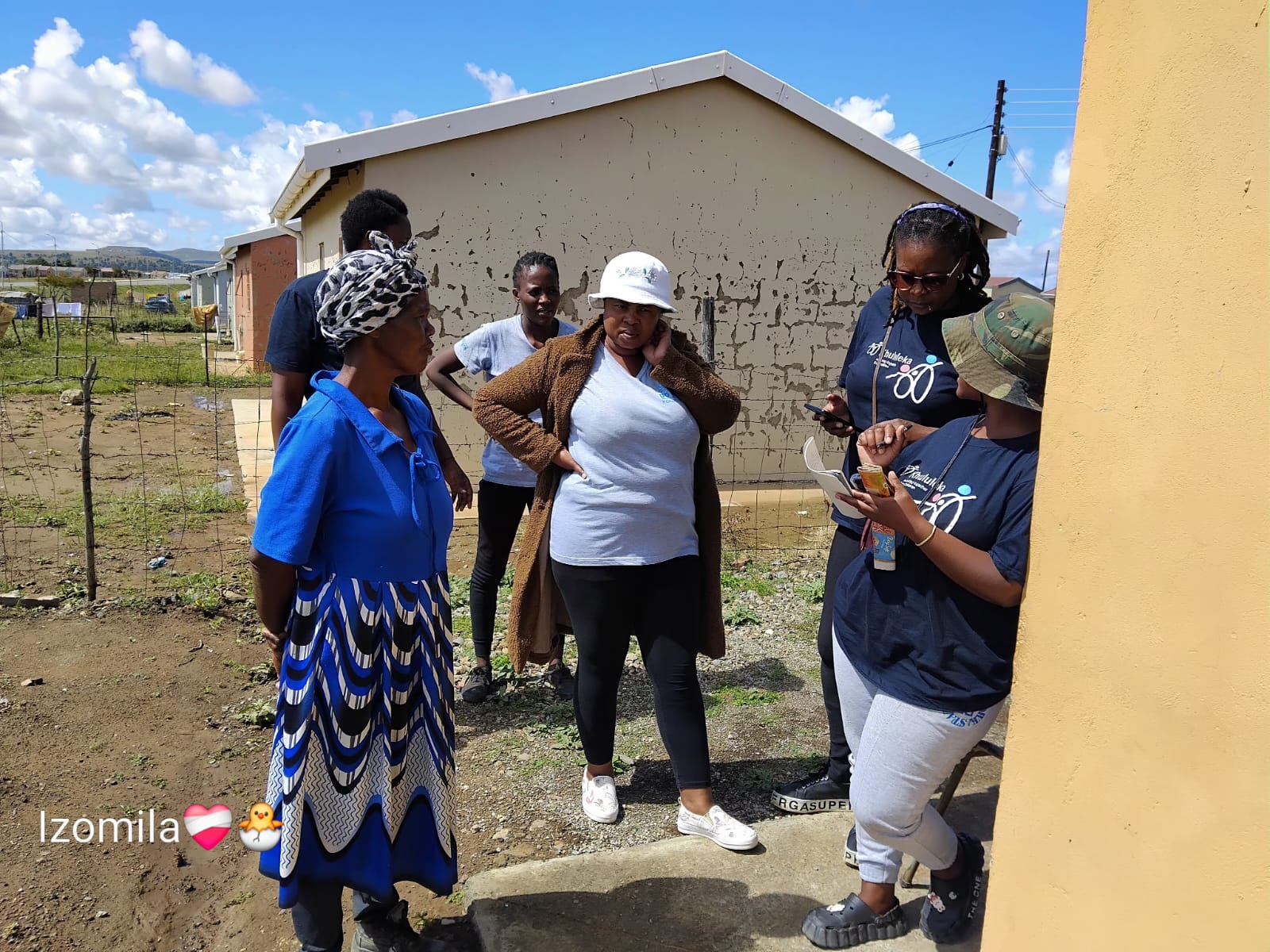Molteno’s Birth Certificate Campaign: Overcoming Rural Challenges in South Africa
12 Aug 2025
What is a birth certificate, and why is it important?
A birth certificate is an official document that proves a person’s birth and provides their basic information. It is a child’s first official record of existence, confirming their identity, age, and nationality. In South Africa, this document is important for children because it offers legal proof of identity and citizenship, which are essential for accessing basic rights and services. Without it, children may face difficulties in getting healthcare, enrolling in school, receiving social assistance such as the child support grant, or being protected under the law. According to Hall, Almeleh, Giese, Mphaphuli, Slemming, Mathys., et al (2024), a birth certificate is an enabling document, a gateway to a range of critical services that support children in reaching their developmental potential.
The National Integrated Early Childhood Development Policy (2015) recognises that every child should have the opportunity to access early learning, care, and support from birth. However, formal ECD centres require birth certificates for registration and subsidy, which can be a challenge for children who are undocumented.
Where to register?
In South Africa, births are registered through the Department of Home Affairs (DHA). According to the Department of Home Affairs (n.d), a birth should be registered within 30 days of birth, any registration after this period is considered a late registration. To improve access, the government has made it possible for parents or caregivers to register births not only at DHA but also at certain hospitals and health facilities at the time of delivery. This approach has helped improve early birth registration. Early birth registration increased from 55% in 2010/11 to 94% in 2019/20. This is because of the rollout of Home Affairs service points within public health facilities, Hall, Almeleh, Giese, Mphaphuli, Slemming, Mathys, et al. (2024). In urban areas, Home Affairs offices offer open booking systems through their online platform to make accessing services easier.
Despite this progress, there are still challenges in rural and remote communities, where access to registration offices or services remains limited. In these areas, families struggle to reach service points due to transport costs, lack of information, or missing documentation. As a result, many children in rural areas remain undocumented, limiting their access to essential services such as education, healthcare, and social protection. These factors, among others, have led to gaps in registration, especially in rural and under-resourced areas.

The Molteno Birth Certificate Campaign
Khululeka, a nonprofit in Molteno, a small town in the Eastern Cape province, conducted home visits to gather data on children not attending Early Childhood Development (ECD) centres. The findings revealed that many children did not have birth certificates because their parents or grandparents did not have Identity Documents (IDs). As a result, these families were unable to access basic services and often relied on piece jobs to survive, living from hand to mouth.
Another issue identified from the data is that some parents, particularly those living on farms, give birth at home and do not go to a hospital afterward. Without a hospital-issued birth record, registering the child’s birth becomes challenging. It was also found that children in rural areas are often left in the care of grandparents while mothers move elsewhere to seek employment. In these cases, children are left without proper documentation and are unable to access the Child Support Grant. One major challenge in Molteno is not having local government departments like the South African Social Security Agency (SASSA), the Department of Home Affairs (DHA), or the Department of Social Development (DSD). Residents are required travel long distances to access these essential services, which many cannot afford to do. These challenges were shared with key local stakeholders, including ward councillors and representatives from DSD, SASSA, and DHA, during a stakeholder meeting to work towards a practical solution. A collaborative decision was made to bring services closer to the community by having mobile units to assist residents with ID applications, birth registrations, and social grant access.
The campaign had a positive impact in 2024. In the first round, there were 50 individuals to assist:
- 23 people successfully received help with IDs and birth certificates.
- 27 could not be assisted due to missing documents, such as parents without IDs needing a family member with an ID to register them, or children without birth records due to home births without hospital letters.
To further support the initiative, the Do More Foundation also provided transport assistance to individuals who needed to travel to the Home Affairs office for follow-up services, understanding that transport costs are a major challenge for many community members.
A mother’s story from Molteno
During the home visits, one mother was identified whose children were not attending an Early Childhood Development (ECD) centre, the reason was that they did not have birth certificates. She shared that she had lost her ID years ago and has five children. Three of her children were registered under her mother’s name and were receiving the Child Support Grant and attending school. However, her two youngest children had no birth certificates, which meant they could not enrol in school or receive the social grant.
She lives in a household of 13 family members, where the family relies on the grandparents’ pension and social grants received for the children in the family. With no stable income and the youngest two children not receiving grants, it was difficult to meet all the children’s needs or ensure their access to education. Fortunately, she was part of the 23 individuals who received assistance through the campaign. She had all the necessary supporting documents, and her two children were successfully issued birth certificates. She is still waiting to collect her ID from Home Affairs.
She shared that this campaign has made a significant difference in her life, and she now understands the importance of having these documents, not only for herself but also for her children. With their birth certificates, her children now go to school and receive the Child Support Grant. She described the current situation as more manageable and felt hopeful about the positive changes the documents have made in their lives.

What does this mean for the community of Molteno?
The birth certificate campaign in Molteno has highlighted how important it is to bring services closer to communities, especially in rural areas where access to services can be a challenge. Without the necessary documents, many children are left behind, unable to access school, receive social support, or benefit from other opportunities that support their growth and well-being.
This campaign also showed the power of collaboration between local organisations and government departments. By working together, progress was made, making a difference in the lives of families who struggled without documentation. This campaign has not only assisted individuals but also the community by making services more accessible and building trust between local organisations, government departments, and the community.
Reflections and recommendations
Many rural communities across South Africa face similar challenges when it comes to accessing essential services. The progress made in Molteno reminds us that change is possible when systems meet people where they are. Strengthening and continuing mobile services can make a big difference, reducing the need for families to travel long distances for birth registration, ID applications, and social grants applications.
Ongoing community awareness is also important, especially for families who give birth at home. Supporting parents with the right information and guidance can help ensure children are registered early and can access the services they need. Finally, improved coordination between ECD stakeholders and local government departments makes it easier for families to receive the support they need, especially in matters that involve children. These efforts can create more inclusive communities where every child is supported and cared for.
Written by Nokubongwa Ndlangamandla
Khululeka is a non-profit organisation that specialises in resources and training in Early Childhood Development, situated in the Chris Hani Municipal District of the Eastern Cape Province of South Africa. The NPO aims to advocate and promote the establishment of programmes, facilities, training, support, and resources for the provision of early childhood development.”
“The DO MORE Foundation, founded by RCL FOODS, runs a community project in Molteno and Sterkstroom, two towns situated close to the Ouma factory. This proximity has enabled meaningful partnerships and locally driven initiatives that support families and young children in these rural communities.
Source documents
Hall, K., Almeleh, C., Giese, S., Mphaphuli, E., Slemming, W., Mathys, R., et al. (2024). South African Early Childhood Review 2024. Cape Town: Children’s Institute, University of Cape Town & Ilifa Labantwana.
Republic of South Africa. (2015). National Integrated Early Childhood Development Policy. Pretoria: Department of Social Development.
Republic of South Africa. Department of Home Affairs. (n.d.). Birth Registration. Retrieved from: https://www.dha.gov.za/index.php/civic-services/birth-certificates